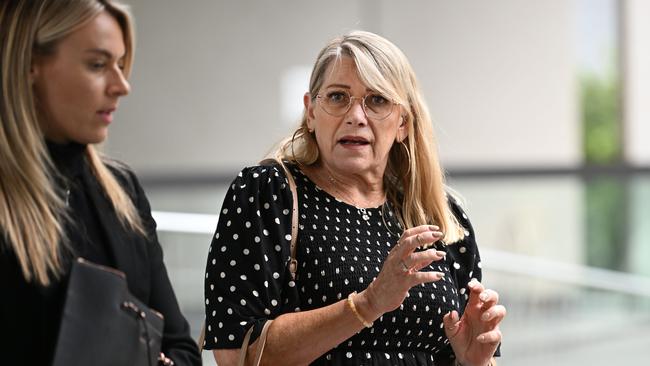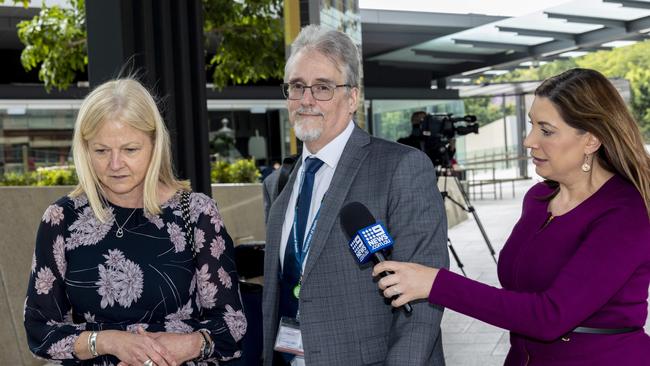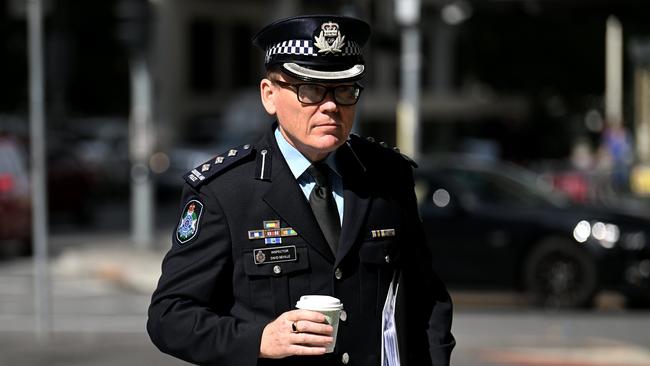Biggest revelations to emerge from Qld DNA bungle grilling
Revelations that bloodstained evidence was ignored and the existence of a toxic work culture have been made at an inquiry into the state’s DNA testing. This is everything we know so far.

Police & Courts
Don't miss out on the headlines from Police & Courts. Followed categories will be added to My News.
The first stage of public hearings into the DNA bungle has come to a close, with the week-long module revealing a toxic work culture at the state-run laboratory, concerns of senior scientists being ignored and bloodstained samples collected from murder scenes not being tested.
The commission of inquiry, led by ex-Court of Appeals president Walter Sofronoff, has heard how lab mangers at the Queensland Health Forensic Scientific Services (FSS) presented data that was “difficult to read” to persuade police to adopt a high threshold for testing DNA.
Hearings will continue on Monday, with counsels assisting the inquiry expected to focus on scientific issues at the lab and how the alleged toxic culture impacted its capacity to test forensic evidence.
The list of witnesses has not yet been finalised for the second stage, but it was expected senior scientists from FSS will feature prominently.
In 2018, the lab introduced the threshold for testing crime scene evidence, which led to thousands of potentially critical samples collected from murder and rape scenes being dismissed.

INVESTIGATIONS TAINTED BY TESTING BUNGLE
• Murder in late 2021: 33 samples rejected by FSS as “insufficient DNA for further testing”, but 10 were later found to contain usable DNA, including evidence to advance investigation
• Rape in late 2021: Nine samples returned by FSS as “insufficient DNA for further testing”, but all nine returned usable profiles after insistence from QPS, including a match with suspected offender
• Murder in late 2018: Four samples returned by FSS as “insufficient DNA for further testing”, but after further processing at the request of QPS, three returned usable profiles
• Between January 2021 and May 2022: 393 samples returned as “insufficient DNA for further testing”. But after QPS requested further testing, 33 per cent returned a usable profile, while the success rate for evidence collected for sexual offences was 66 per cent

Last week, the inquiry honed in on who and why the threshold was introduced, with repeated focus on a pivotal report from 2018, produced by the lab and referred to as the options paper.
Its own senior scientists at the lab voiced concerns about the data used to convince police to adopt the change, while various figures in Queensland Police Service’s DNA squad said they didn’t understand the report and felt misled by FSS.
The report presented data in the report that made multiple experts believe the success rate of testing below the threshold was less than 2 per cent, when actual data said the accuracy was 10 per cent.
Here’s a recap of the inquiry so far
• Queensland Health’s acting director-general, Shaun Drummond, said he was told a week before taking up the position was no major problem with the state-run forensics laboratory despite mounting concerns emerging from The Australian’s podcast, Shandee’s Story.
• The former executive director of Queensland’s beleaguered state-run lab was accused of retrospectively adopting a position in order to blame police for the forensic testing debacle.
• A spattering of blood on broken glass left at a major crime scene and DNA cells discovered on a murder victim’s calf were both dismissed by FSS, which ignored the crucial evidence, labelling it insufficient for processing
• Senior cops in the DNA squad said they were pressured by FSS lab managers to agree to threshold, with the presentation of confusing data and forceful recommendations.
• A murder case in late 2018 set off alarm bells about testing at the FSS.
• There was a “toxic” culture at the state-run forensic laboratory at the time the lab made changes to testing DNA samples which led to evidence in murder and rape cases being ignored



